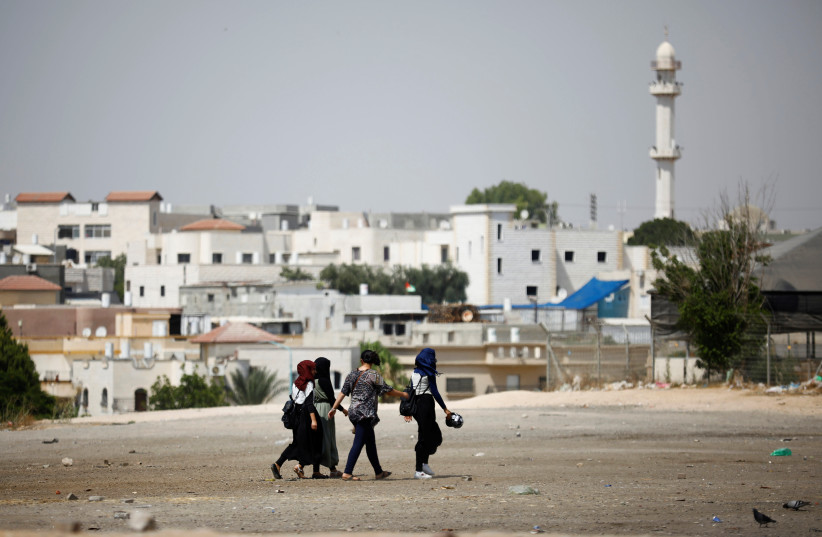Recent weeks have seen a growing chorus of voices expressing concern for what is happening in the Negev. On the one hand, Jewish society has been talking about Bedouin criminality, the lack of personal safety. Terms like lack of governance, loss of control, and so on have been echoing in our public space.
On the other hand, morale and the state of personal safety in Bedouin society has been rapidly deteriorating. The prevailing sentiment is that they are caught between the ever-exacerbating violence in Bedouin society and an indiscriminate process of intensified enforcement, involving all branches of the security forces.
The events we have been witnessing in recent weeks and the entry of large police forces en masse – the likes of which the Bedouin have never seen in the past, employing various ways and means (helicopters, dogs, undercover agents, and so on) are indicative, in the eyes of Bedouin, of a very worrying change in the government’s attitude toward Bedouin in the Negev.
The prevailing voices among Bedouin everywhere, and whenever town halls are held, are that “of course we are in favor of dealing with violence, eradicating crime, of which we (the Bedouin) are the primary victims, but we do object to this turning of innocent civilians into targets in the enforcement agencies’ so-called ‘operations.’”
Media coverage of the police’s conduct and its real ulterior motives have gone a long way to cement the hard feelings of distrust and antagonism toward the establishment which, the Bedouin allege, are “exploiting the situation to even the score with Bedouin society, to strip it of its assets and its lands,” rather than genuinely caring for the population’s security.

Another facet of this fragile, sensitive state of affairs that is no less worrisome, following the inflamed conversation in the various online media, and following a Jewish citizens’ mobilization for “defending the Jews against the Bedouin,” is that these two communities have now descended into a profound pit of mutual distrust.
These communities formerly knew how to get along in this shared space and to protect it. The feeling is that, following the wave of incidents in recent months, this shared space is growing less and less shared, and the tensions between the communities are continually increasing.
CRIME DID not arrive in our community a few months ago. It has been festering among us, the result of years of neglect, both in terms of investment in the Bedouin community and in terms of the investment in values-based education toward respecting others.
In the face of this intercommunal tension, mixed Jewish-Bedouin groups have begun to form, to offer a different picture and to sound a different voice, which in their mind represents the voice of sanity. In our current state, this sane voice is indeed the right one to amplify. Any other attempt will have a disastrous effect on all Negev inhabitants.
Any harm to the shared space will have severe implications for all, Jews and Bedouin alike. Each of us, wherever we may be, is compelled to call for a return to sanity, to positive thinking. We must all call upon the police to do its job, to fight crime professionally, fairly and for the sake of all of us, Jews and Bedouin alike. This will restore the sense of security, thereby preventing internal splits that will ultimately cost us all dearly.
The writer is chairman of Ajeec Nisped, a team of Jews and Arabs working together to promote socioeconomic development and peace-building among communities in transition.
